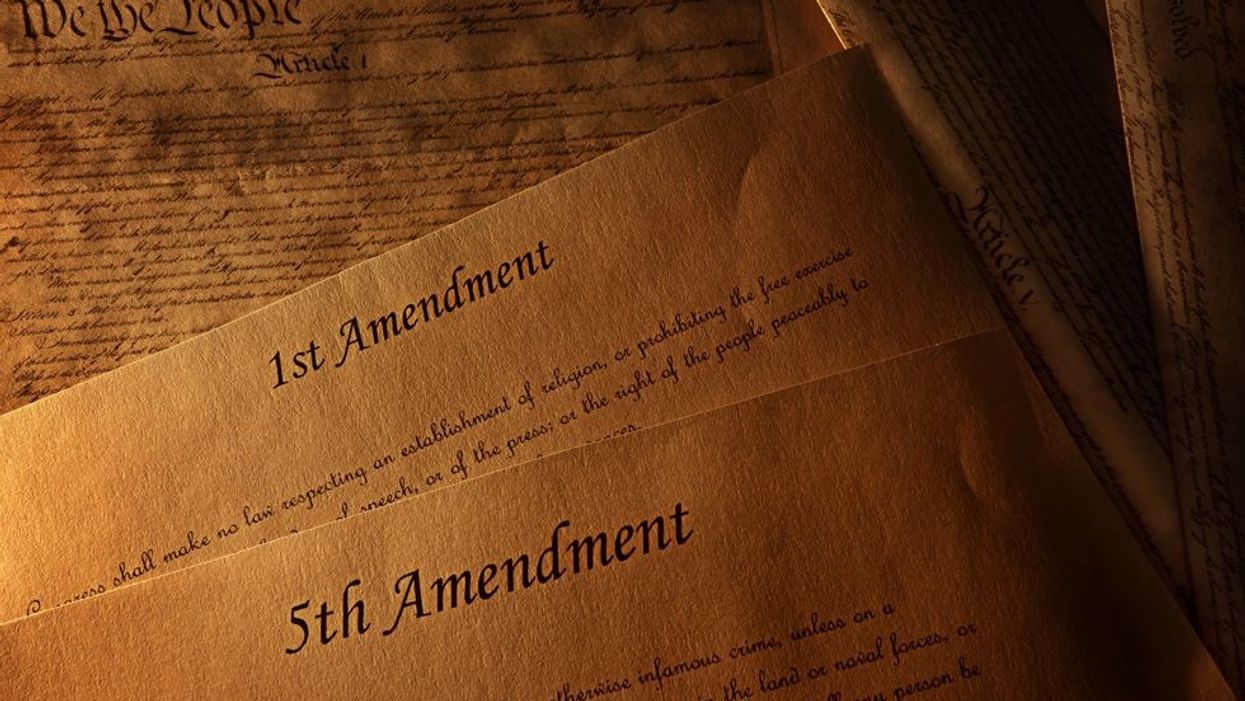Goldman is the communications director of Wolf-PAC, a group fighting to amend the Constitution to permit more regulation of campaign finance.
The top three Democratic presidential candidates have each released plans to enact campaign finance reform, according to the Center for Responsive Politics. Proposed changes include new laws, the restructuring of the Federal Election Commission, and the overhaul of federal election rules to eliminate the influence of corporations and wealthy donors — something the vast majority of Americans want.
And, while it's something Americans want, it's not what Americans will get.
First, most of these changes have one thing in common: They can easily be overturned, eliminated or revised. Laws and policies often change with election cycles. For example, take the McCain-Feingold law. Signed in 2002, the Bipartisan Campaign Reform Act was a victory for campaign finance reform — banning soft money, linking campaign contribution limits to inflation, creating disclosure requirements and requiring candidates to stand by their political ads by stating their approval at the beginning or end of the message. It wasn't long before court cases began to strip the law. In 2007, Wisconsin Right to Life v. FEC opened the doors for more union and corporate money spent in elections. The next year, the so-called millionaire's amendment in McCain-Feingold was ruled unconstitutional.
Second, we're relying on the politicians who benefit from the current, corrupt system to change it. They have little incentive to do so, and tremendous incentive not to. This creates a dilemma: Either the proposed changes aren't designed to solve the problem fully, or a majority of politicians will never pass and implement them.
Adding a free and fair elections amendment to the Constitution will ensure that special interests can no longer drown out the voices of the American people. A constitutional amendment would provide a lasting solution because it goes above the Supreme Court and can't be easily repealed. To date, the only amendment to be repealed was the 18th Amendment, which mandated a nationwide prohibition of alcohol.
There are two ways to propose a Constitutional amendment, as described in Article V of the Constitution: when two-thirds of each house in Congress votes in favor of a proposed amendment or when two-thirds of the states (34 states) call for a convention to propose the amendment. However the amendment is proposed, it must still be approved (ratified) by the states. Ratification requires a vote in support of the amendment from three-quarters of the states (currently 38), which means that to become part of the Constitution, an amendment must have overwhelming support from the American people.
Throughout history, Americans have regularly amended the Constitution in order to address important issues facing the country. Amendments to abolish slavery and expand voting rights in federal elections for all citizens, regardless of race, gender, or age (18 and older) are two examples of how ordinary Americans banded together to create desired change.
Campaign finance reform is the most important issue of our time as it is the root cause of a federal government that's no longer responsive to the people. It demands no less than a Constitutional amendment.



















